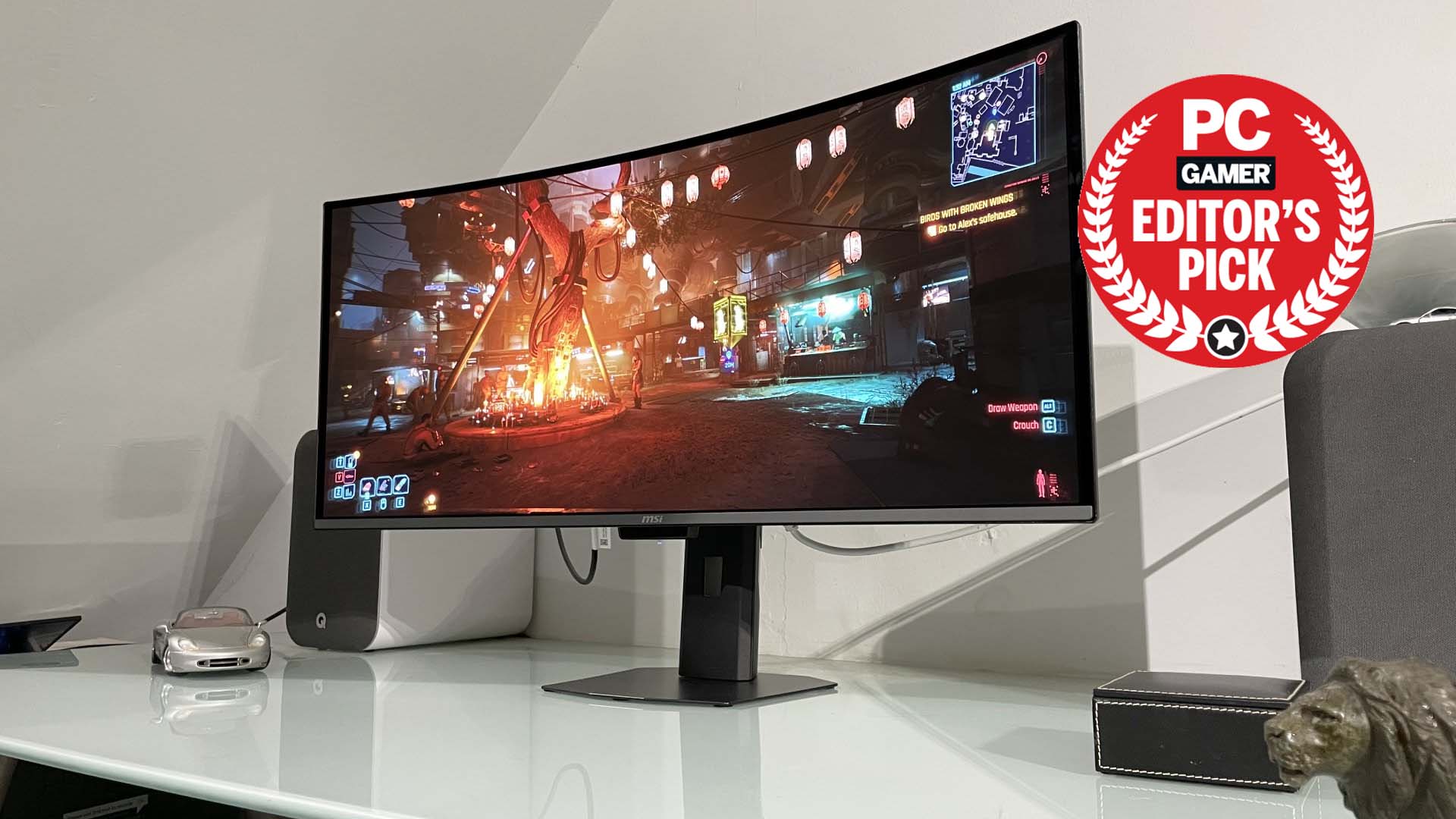Xbox Series X review: The next-gen console, from a PC gamer's perspective
Does the most powerful games console make sense as a secondary gaming rig or, heaven forbid, a PC replacement?
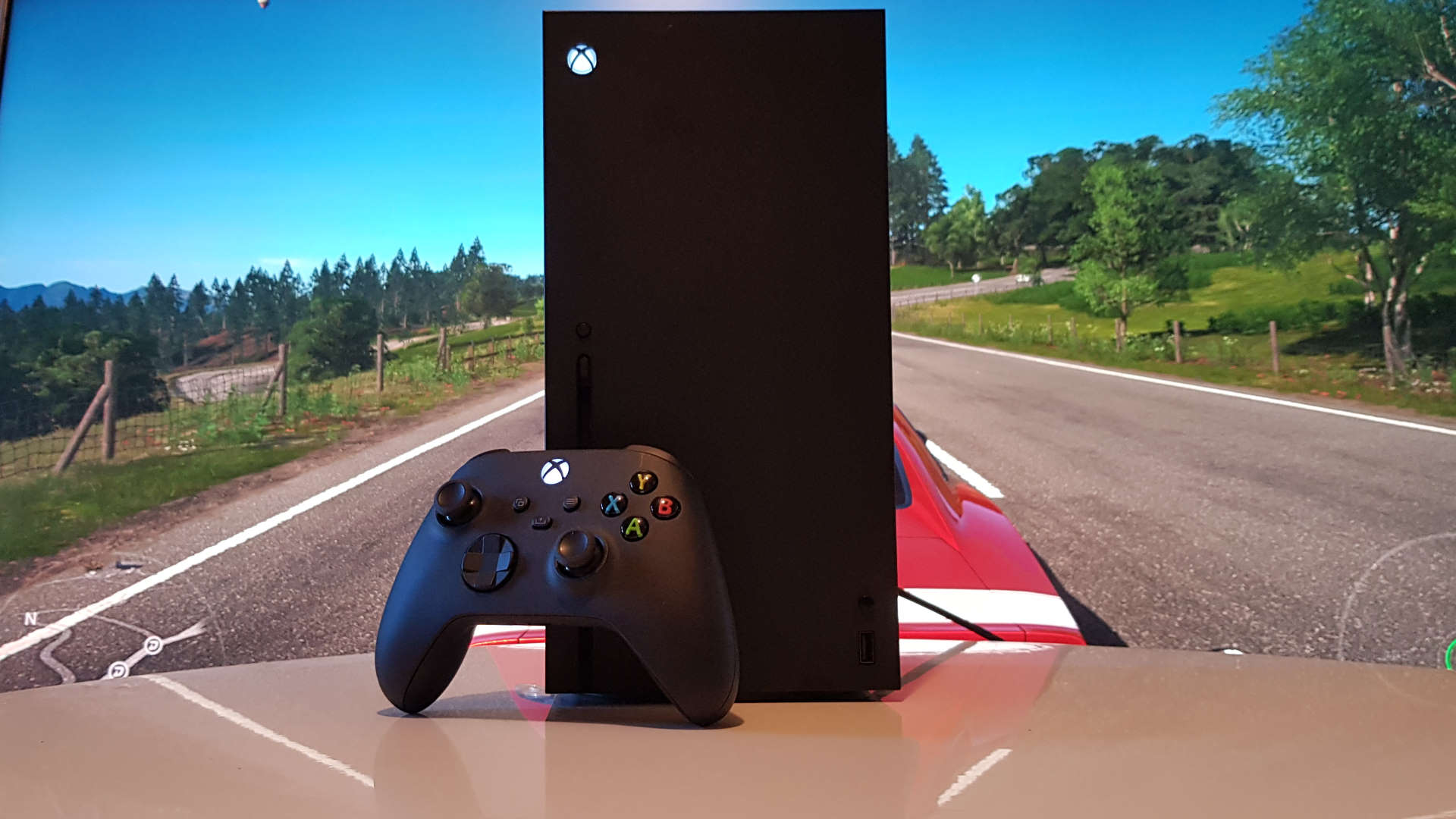
With today's launch of the Xbox Series X, it's clear the new gaming generation has begun in earnest. The PlayStation 5 is following this week, but Microsoft's Series X will remain the most powerful games console ever made. But how much does that really matter and how does that stack up against today's gaming PCs? And should us PC people consider the Series X as a viable second machine, or even a replacement for our aging rigs? Heresy, I know...
So yes, we're reviewing a games console. But bear with us, this is undoubtedly the most PC console we've ever seen. Indeed this is the most PC console generation we've ever seen.
Quite apart from the fact that everything uses the same x86 CPU base, in terms of the actual games themselves, both the Xbox Series X and Sony PlayStation 5 are putting players through the same settings wringer us PC gamers have been dealing with since time immemorial.
No longer is the console gaming experience universal for all players. Different levels of hardware, screen tech, and the personal prioritisation of either fidelity or frame rate, all mean that not every next-gen game plays the same for everyone.
In previous times, console generations have almost started with a clean slate, shifting to entirely new hardware bases with each new machine. Those—needlessly expensive—days are over, and both Sony and Microsoft are now using PC parts to fashion their rival machines.
This really started in earnest with the Xbox One and PlayStation 4 generation, and the following updates, the One X and PS4 Pro, delivered higher performing innards while retaining the same essential codebase. It's practically the same situation with the Series X and PS5—they're sporting higher-spec hardware, but games are 'simply' coded to take advantage of that extra power, to run at higher frame rates or resolutions.
But because the consoles now have different levels of tech, and the games are designed with different performance presets, developers are now putting more choice in front of the players, whether they want it or not. That means games will now ask you to choose whether you want to prioritise image fidelity or frame rate, and you can subsequently dive into the settings menu to pick and choose.
Keep up to date with the most important stories and the best deals, as picked by the PC Gamer team.
You can also jump into the console settings and pick whether you really want to run at the still-punishing 4K resolution or whether you'd rather nail 120Hz at 1440p on your big screen TV.
Yes, console gaming is no longer an easy, one-size-fits-all kinda experience, and that means it's a lot more like a PC than ever before.
Xbox Series X specifications
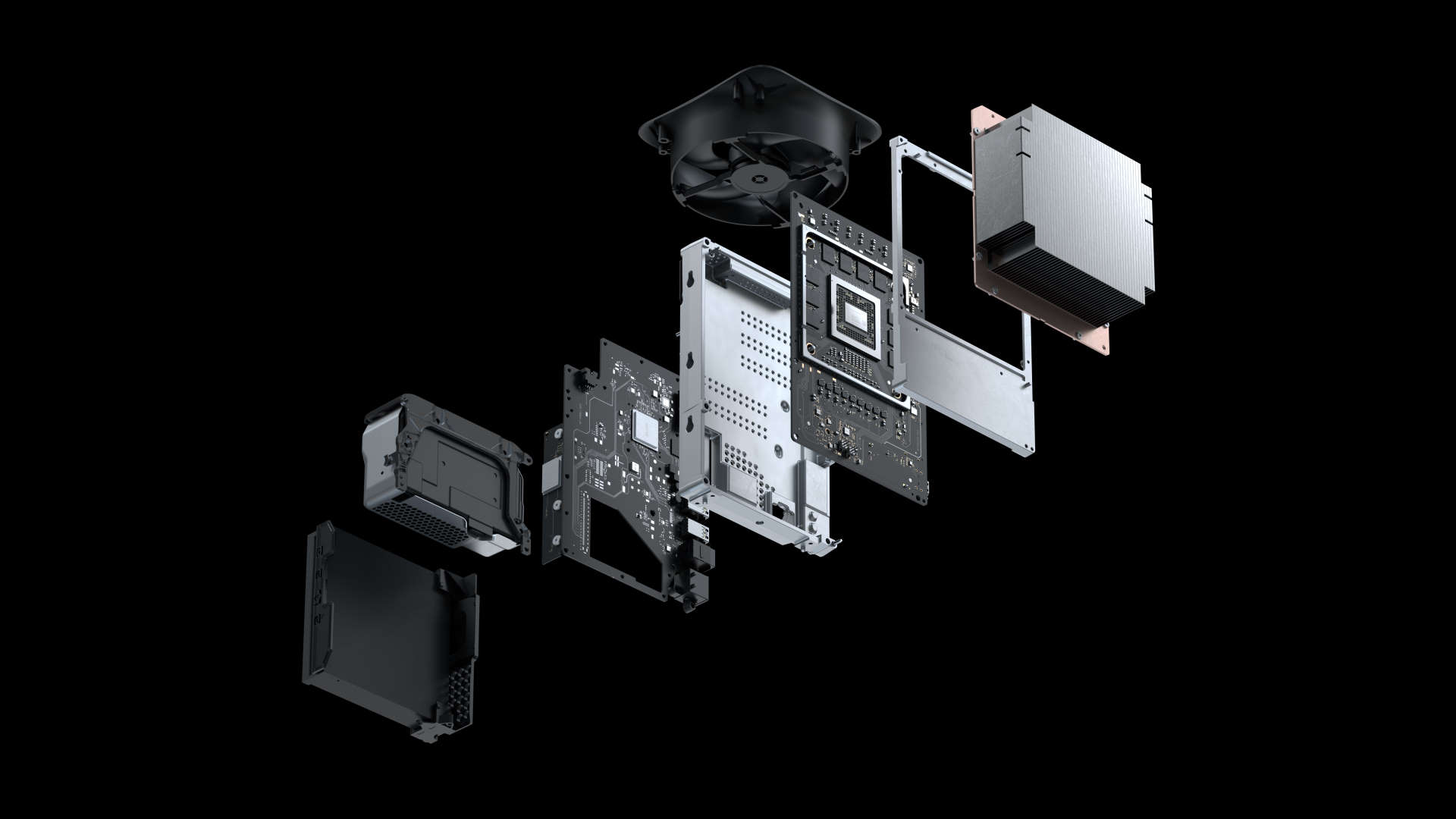
Xbox Series X specs
Microsoft has not been messing around with the component makeup of the Series X, taking an eight-core, 16-thread Zen 2-based CPU from AMD and pairing it on a single chip with a GPU based on the red team's new RDNA 2 architecture.
That's a bit of a mix and match of current and next-gen architectures, with the central processor being cribbed from the existing Ryzen 3000-series, rather than AMD's Ryzen 5000 chips also launching today. With the 3.6GHz all-core clock speed, that makes it effectively equivalent to a Ryzen 7 3700X processor.
Which, to be clear, is a frickin' excellent CPU in its own right, and especially against the weak-heart Jaguar cores which wheezed along inside the last-gen Xbox machines. No matter how much graphics silicon Microsoft threw at the ol' One X it was those old-school, pre-Zen AMD cores which struggled to keep it fed, especially if you weren't GPU-bound and maxing out at 4K.
The RDNA 2 graphics silicon offers twice the raw computational power as the previous MS big boi, the Xbox One X. It's the very latest in AMD GPU tech, taking the 7nm Navi-based architecture we're going to see in the company's RX 6000-series graphics cards later this month and squeezing it down into a single SoC.
| Header Cell - Column 0 | Xbox Series X | Xbox One X |
|---|---|---|
| CPU | Custom Zen 2 | Custom Jaguar |
| Cores | Threads | 8 | 16 | 8 | 8 |
| Boost clock | 3.8GHz | 2.3GHz |
| All-core clock | 3.6GHz | N/A |
| GPU | Custom RDNA 2 | Custom GCN |
| Compute Units | 52 @ 1,825MHz | 40 @ 1,172MHz |
| TFLOPS | 12 | 6 |
| Memory | 16GB GDDR6 | 12GB GDDRR5 |
| Memory bus | 320-bit | 384-bit |
| Storage | 1TB NVMe SSD | 1TB HDD |
| Expansion | 1TB Seagate Storage Expansion, USB 3.1 HDD or SSD | USB 3.1 HDD or SSD |
| Price | $499 | $499 |
In terms of a rough equivalence, its 52 compute units put it just under an RX 6800 and comfortably ahead of the RX 5700 XT of the last Navi generation. It's actually clocked in impressively high too, running at 1,825MHz, while the RX 6800 is listed by AMD as coming with a 1,815MHz Game clock.
And despite all that silky new silicon inside the Series X SoC we're looking at a chip which is actually smaller than the one in the Xbox One X.
In terms of memory Microsoft has followed up the change it made with the One X and shifted from using standard system DRAM throughout the whole machine to utilising VRAM across the board. It's going with GDDR6 this time around, and a rather healthy 16GB of it too.
It's a bit of a split in terms of what's actually available to games and applications to use, however, with 10GB of that memory cache sporting 560GB/s worth of bandwidth, with a further 3.5GB at a slower 336GB/s.
On the storage side much has been made of the switch to SSDs with this generation, and rightly so. The 1TB NVMe drive at its heart makes a big difference to the feel of the machine and the speed at which you can now get into the game. There are other avenues this opens too, but we'll come to that later. As will Microsoft in fact.
Interestingly, while it is using the PCIe 4.0 interface, it's only a x2 connection. That means you're only getting the same raw bandwidth as a PCIe 3.0 SSD dropped into a x4 M.2 socket on your PC.
Xbox Series X features
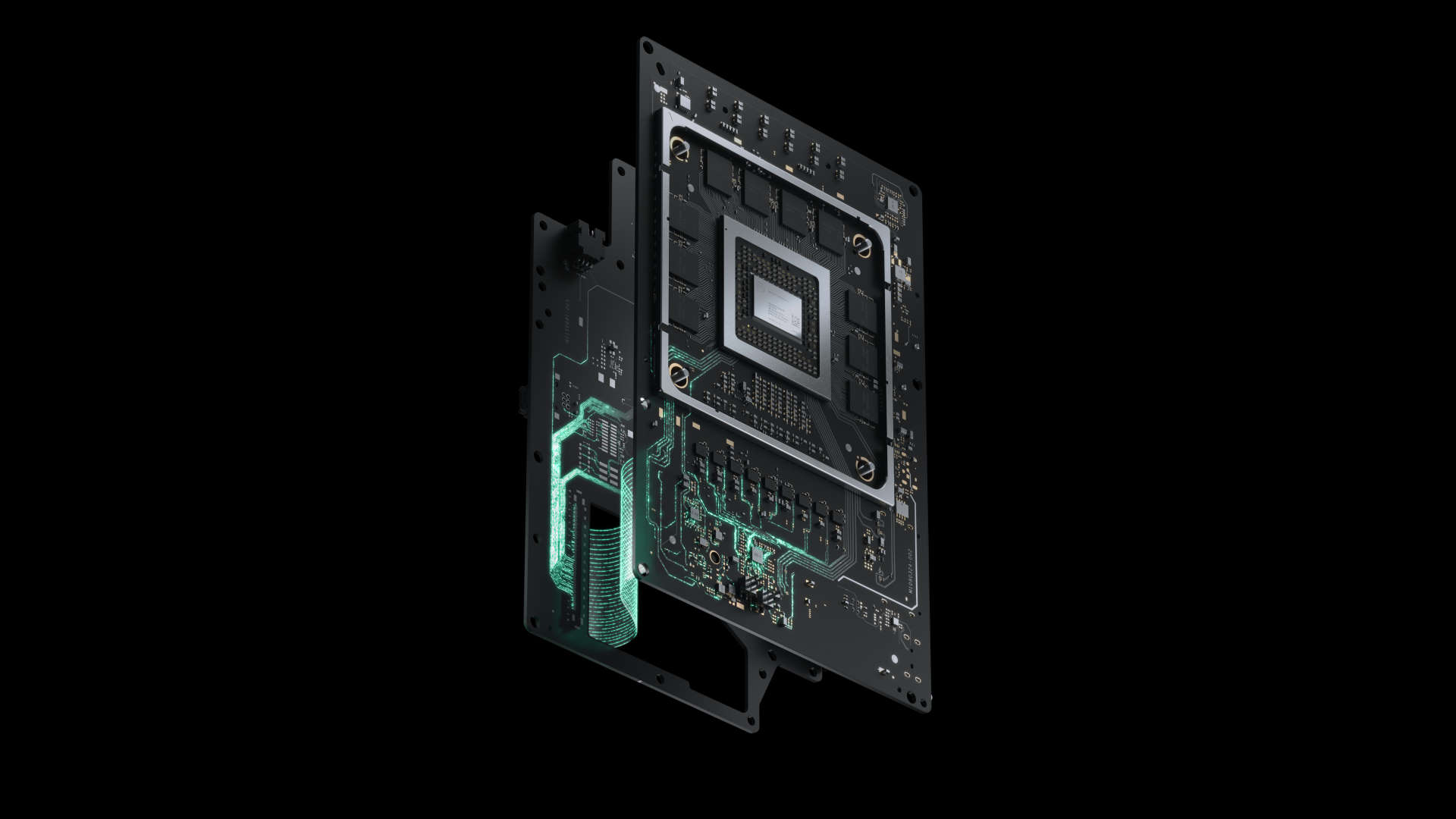
Xbox Series X features
There are some truly interesting new features coming into the new Xbox, some of which have been available in some form on the PC for a while, and some herald a potential new age for our own platform too down the line.
The Xbox Velocity Architecture is a catch-all term for four separate features, and arguably the most intriguing is the DirectStorage API. This is a new piece of technology designed to lessen the gaming load on CPUs by taking asset streaming for a modern game world and shifting the overhead from multiple cores to just a sliver of one.
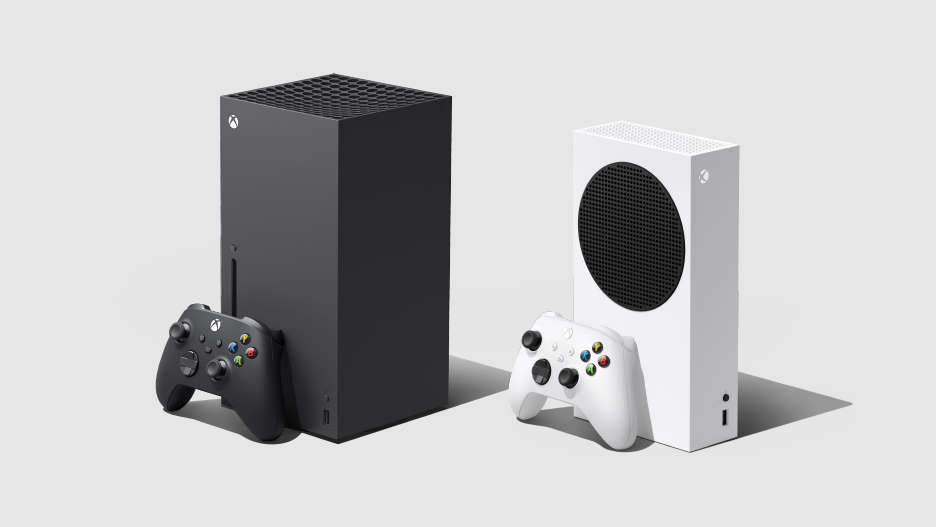
But wait, there is another. The Xbox Series S is the all-digital smaller sibling to the Series X. It's a far less powerful machine, coming in at $299 and aiming for 1440p gaming performance rather than 4K highs. And at that price it's almost a tempting secondary Game Pass partner machine for your PC to drop into your living room. Almost.
As part of the DirectX family it's inevitably coming to the PC, but interestingly it's already being supported by Nvidia and it's latest RTX 30-series GPUs. When we first heard about the RTX 3080 it was the RTX IO tech which promised much, seemingly going even further to reduce the load on the CPU and drop it on the graphics card. It's all about lossless decompression running on the GPU, and could be a game changer… when it starts getting used in games some time next year.
Velocity also refers to the Series X's own dedicated decompression logic, some magic sauce called Sampler Feedback Streaming, and, of course, that NVMe SSD.
Linked to the Velocity architecture is the smart Quick Resume feature, which appears in a host of backwards compatible titles, such as Witcher 3, as well as select launch titles. Though we haven't been able to test it running on the Series X Optimised titles as there's a platform bug restricting them from using it until a post-launch update is actioned.
But it allows you to jump in and out of different games as though they were all simply paused. Quick Resume takes the whole state of the game from the system memory and dumps it onto the SSD. That allows you to get back to the game almost immediately, though will mean a chunk of storage space does get set aside for it.
Hence the Series S and its 512GB SSD only coming with 364GB of storage out of the box.
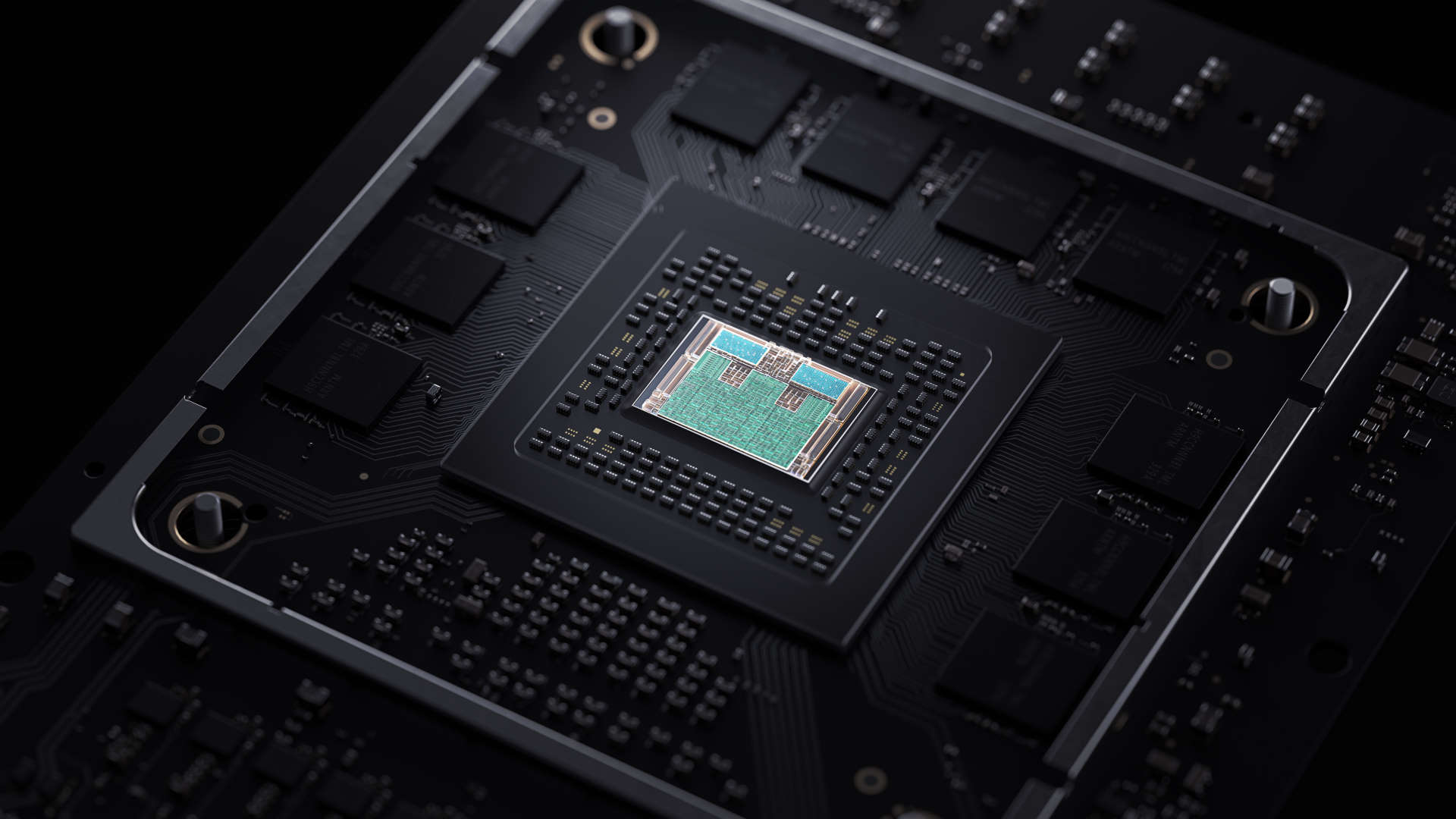
As essentially a Windows-based console there are other DirectX goodies baked into it, most notably DirectML and DirectX Raytracing (DXR). DirectML is all about the machine learning, and has the potential to add a level of AI functionality to the system unheard of in a console. Mostly because they've never needed it. We're still yet to fully realise the promise of machine learning in games, at least not to the extent of having smarter NPCs and better animations.
But what about them ray tracings? We're still not entirely sure about how AMD's implementation is going to work out on PC, with reports suggesting it's a good way behind Nvidia's, and that's likely to make it a bit of an afterthought for the red team. At least something it's not going to want to spend a whole lot of time chatting about.
On the Xbox Series X it seems to be a similar story as none of the review titles we've received to help us get a bead on the new console's performance have included DXR at all.
There is ray tracing support built into the RDNA 2 GPU at its heart, however, and the Series X will have the best opportunity to showcase that of all the next-gen consoles thanks to the raw GPU power at its disposal. But if there's one thing we know about ray tracing, it comes with a performance penalty, and that could make it a tough sell on a closed system.
The continued backwards compatibility push from Microsoft means that every OG Xbox, Xbox 360, and Xbox One game that works on the One X today is playable from day one on the Series X. Not only that but it will look and play better thanks to the higher performance hardware available to the Series X and the Auto HDR feature. That enables old SDR games to get an AI enhancement to inject HDR into it.
It doesn't work on everything as Microsoft is disabling it on titles that look kinda weird with it. We haven't seen any of those as yet, so Microsoft is probably doing a decent job of hiding them…
Xbox Series X launch games
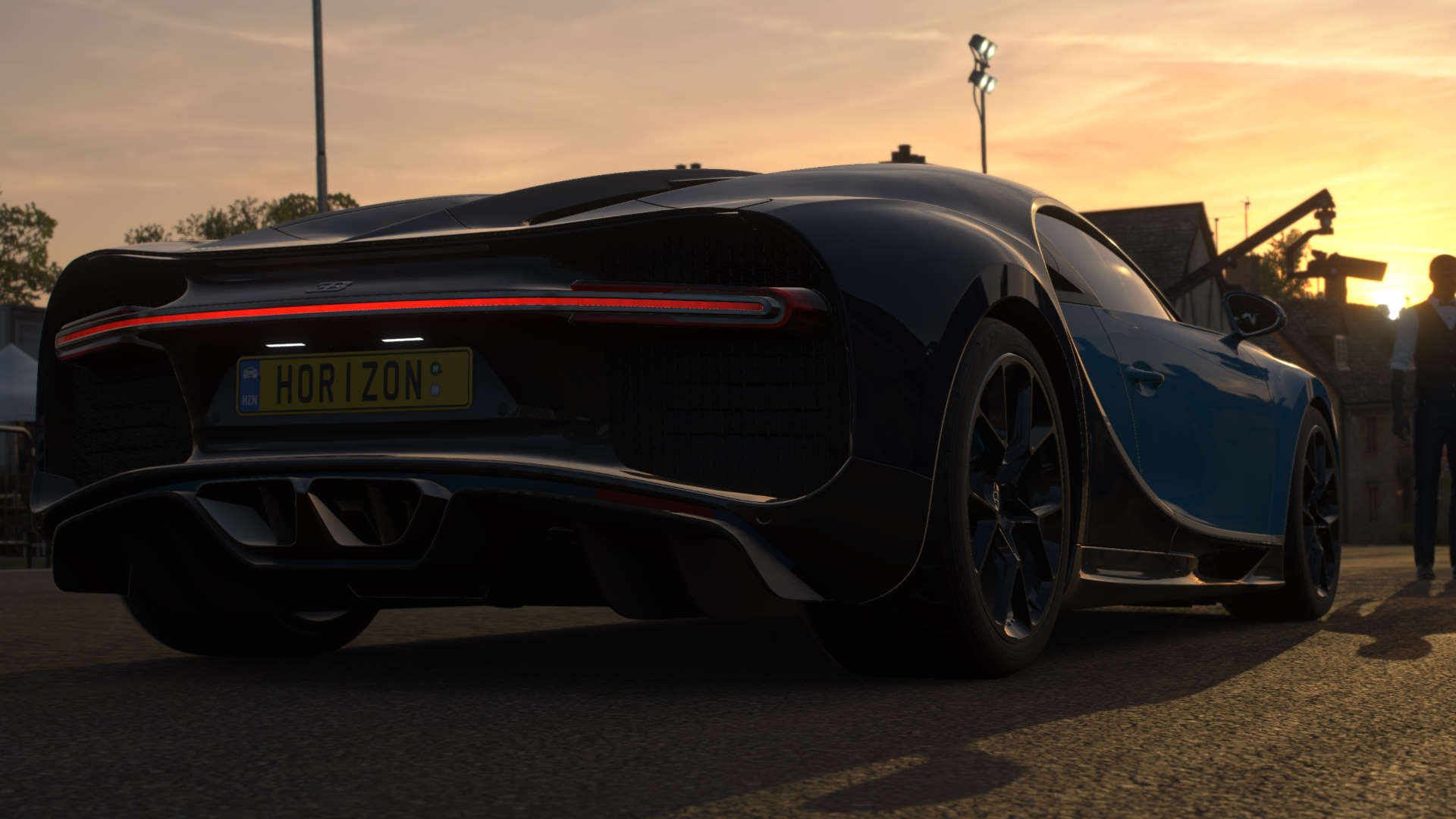
Xbox Series X launch games
With 31 launch day games, Microsoft is touting this as the largest launch lineup in history. These are the Series X Optimized titles, which will deliver higher frame rates, resolution improvements, and new features, such as 4K 120Hz and ray tracing.
But there are no exclusives. All the games around at launch are all either playable today on the PC and Xbox One X, and are releasing on those platforms at the same time.
While Microsoft can claim a huge instant library of games, thanks to its backwards compatibility efforts, easy access via Game Pass, and a host of these optimised titles, there's nothing here that can't be played elsewhere. Pretties are pretty, but I'd argue they're not game changing.
This is the full list of Day One Series X Optimized games:
| Assassin’s Creed Valhalla | Borderlands 3 | Bright Memory 1.0 |
| Cuisine Royale | Dead by Daylight | Devil May Cry 5: Special Edition |
| DIRT 5 | Enlisted | Evergate |
| The Falconeer | Fortnite | Forza Horizon 4 |
| Gears 5 | Gears Tactics | Grounded |
| King Oddball | Maneater | Manifold Garden |
| NBA 2K21 | Observer: System Redux | Ori and the Will of the Wisps |
| Planet Coaster | Sea of Thieves | Tetris Effect: Connected |
| The Touryst | War Thunder | Warhammer: Chaosbane Slayer Edition |
| Watch Dogs: Legion | WRC 9 FIA World Rally Championship | Yakuza: Like a Dragon |
| Yes, Your Grace | Row 10 - Cell 1 | Row 10 - Cell 2 |
Xbox Series X performance
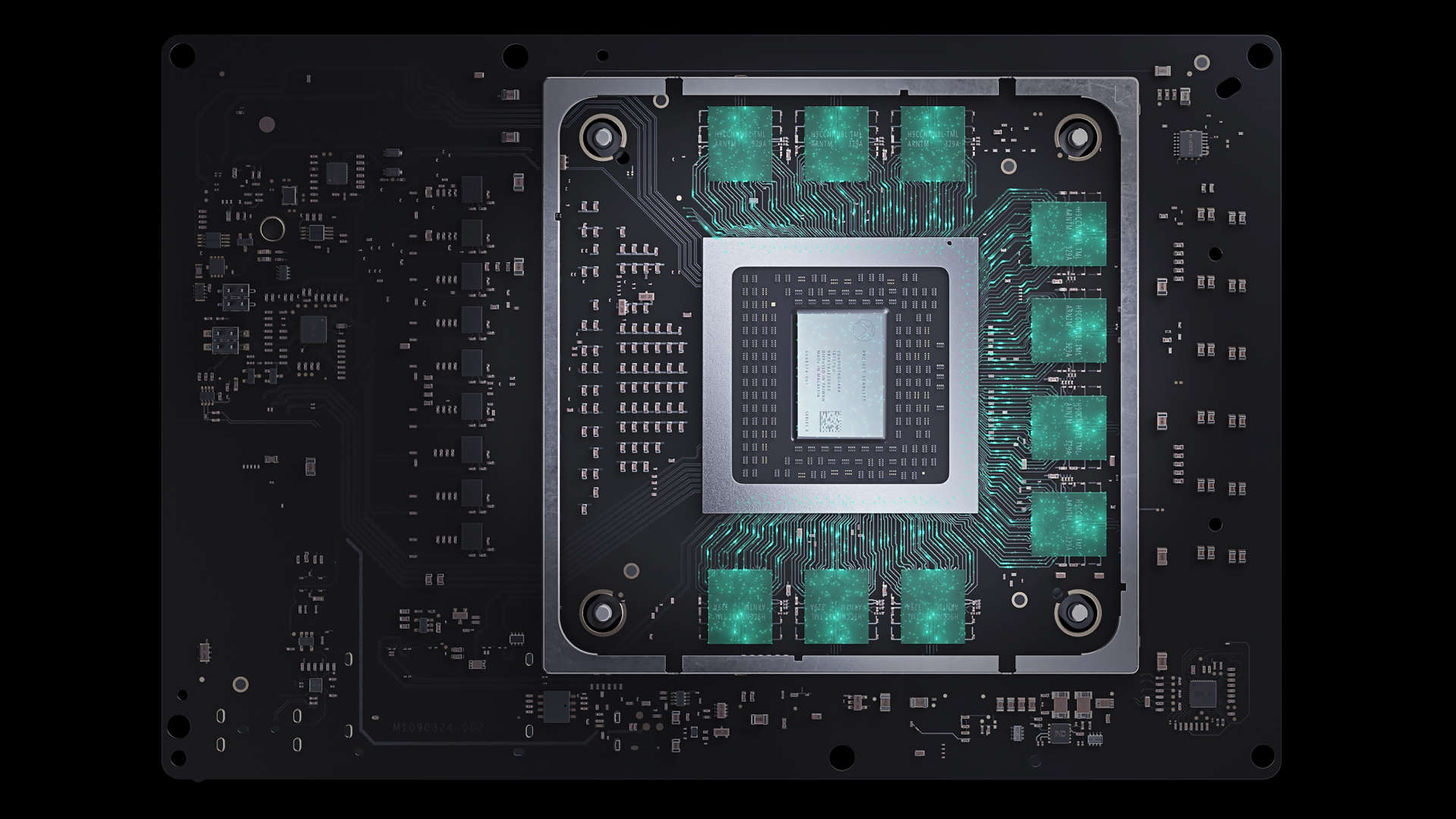
Xbox Series X performance
Honestly it's been tough to really get a real grip on the performance of the Series X at its peak. We've not had a chance to use anything that really takes advantage of the higher-spec hardware at its disposal from the review program games that we've been provided with.
We're really still waiting for that in-your-face, this is next-gen moment
And that means we're really still waiting for that in-your-face, this is next-gen moment. We've come to expect a sort of step-change in fidelity at the start of a new console generation and right now it all feels rather incremental.
We were hoping that Watch Dogs: Legion would give us our first taste of ray tracing on a console, but that was purely the One X version operating under backwards compatibility mode. Then there's Assassin's Creed Valhalla, another to promise the RT funtimes, but like Legion we won't get to see that until launch.
In fact there's nothing really transformative at launch about this next generation of console hardware, especially coming from using a decent gaming PC for any length of time.
Except for that lightning SSD and its Quick Resume feature.
That at least is actually quite brilliant and genuinely makes it feel like a step on from how storage is utilised on PC. Sure, it takes up a chunk of space, but on the Series X that's far less of an issue with 1TB to play with, and the way it takes you back into any compatible game in ultra quick time is fantastic.
You can really see where the addition of the high-speed SSD comes into its own here. Elsewhere load times are impressively good, but only in as much as you'd expect from a proper PCIe-connected solid state drive, but Quick Resume feels like the key right now, and something we can currently do on PC.
We're not talking about the end of loading screens, we've spent enough time with high-performance SSDs in our PCs to know that's not going to change for a while, if ever, as asset sizes keep spiking and game worlds continue to grow.

The mighty Quick Resume doesn't always work out, however. Jumping back into Madden 21 and my stunning 30 yard touchdown pass in front of Snoop Dogg is wiped out, all thanks to the game disconnecting from the server and punting me back to the menu screen even as Quick Resume promised to get me back to my game.
But it's a treat in backwards compatible games, with it never feeling like I've closed down Witcher 3, because it's always there ready to help you plough on through one of the most grim game universes around from the exact spot you left it.
And yes, those old Xbox games play brilliantly on the Series X. In titles where even the raw power of the One X failed it—normally thanks to its weak Jaguar cores not being able to feed however much GPU hardware Microsoft threw at it—the new machine strides on. Often you'll see 4K locked at 60fps where before the fastest console around would struggle.
Still, back to Witcher 3 and the Series X isn't really delivering fully in the 4K mode, with a little juddering frame rates around the edges, though in its performance mode it's silky smooth and still looks incredibly good thanks to the Auto HDR tech.
It is great seeing old Xbox titles that offered patchy frame rates on the current-gen consoles looking even better on the Series X and playing well too. That alone will give gamers an excuse to go back through their current back catalogue when they've run their launch titles out.
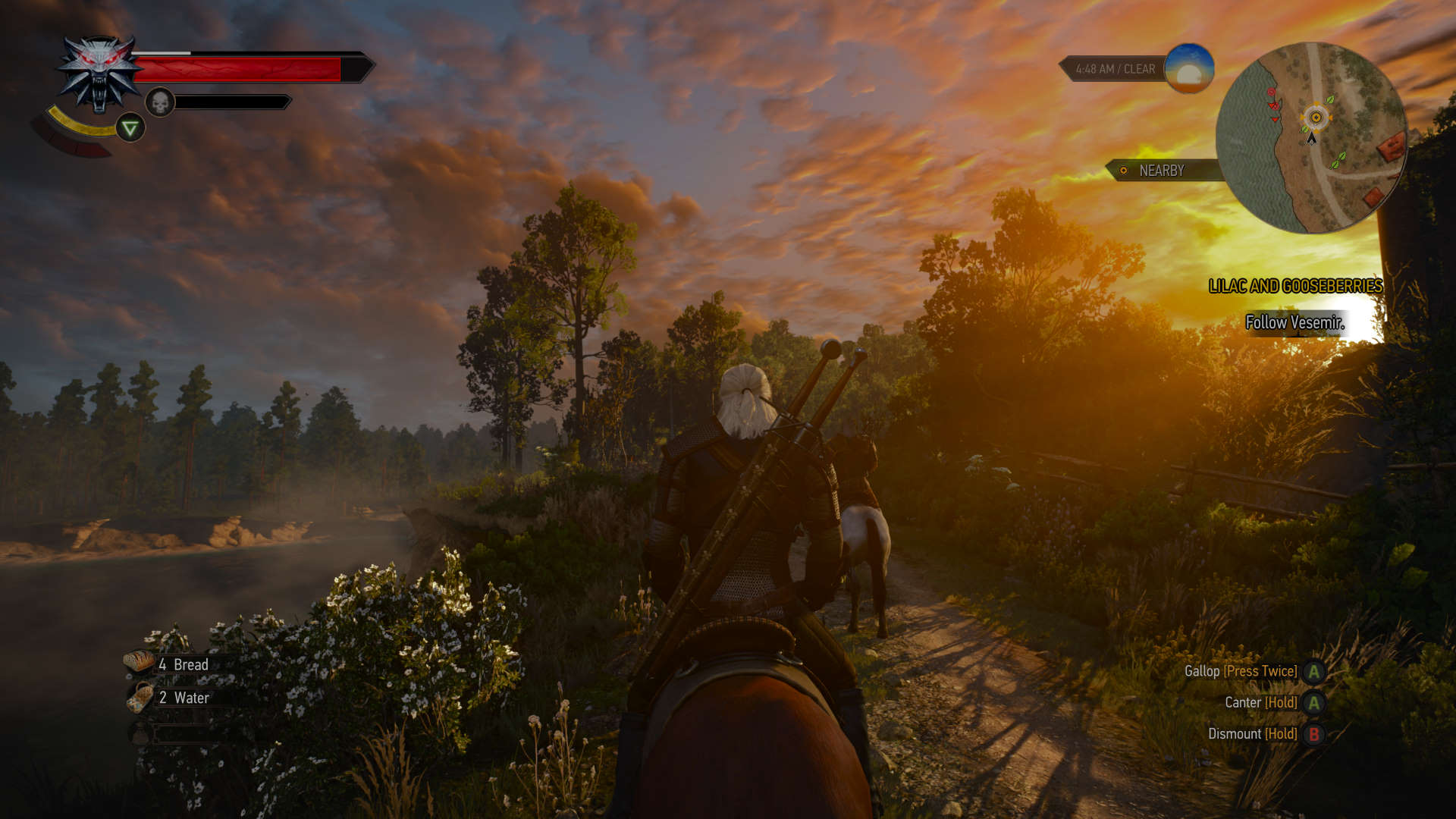
The Xbox Series X has also got the ability to output at 1440p, seemingly unlike the PS5. That means if your TV isn't HDMI 2.1 compatible, and can't manage 4K 120Hz, you'll still be able to bask in the glory of 120Hz at 1440p. And honestly that feels like a bigger deal to me than chugging along at 60Hz in 4K… I loves me some high refresh rates.
One thing we haven't spoken about yet, however, is the performance of that new Xbox Wireless Controller. Partly because I'd almost forgotten that it actually was new. Apart from some extra textured grips, and a new share button in the middle of the pad, it looks identical to the standard Xbox One Controller.
But it is improved and when you're talking about haptics it's actually a leap ahead of the Elite Series 2. Which feels wrong to say, when I love everything else about that expensive pad, but the feedback in something like Forza Horizon 4 is infinitely better with the new controller. On the Elite pad the rumbles feel absolutely bolted on, almost as an afterthought, but with the Series X controller it's far more subtle and feels more context relevant to what's happening in the game.
And hell, that now-classic Xbox pad shape still feels great in the hands. Whether it can really stand up against the absolutely gorgeous DualSense controller from Sony, however, is another question. The PS5 pad's haptics are supposedly revolutionary, and if it can make the transition to PC with all that, it could be a winner.
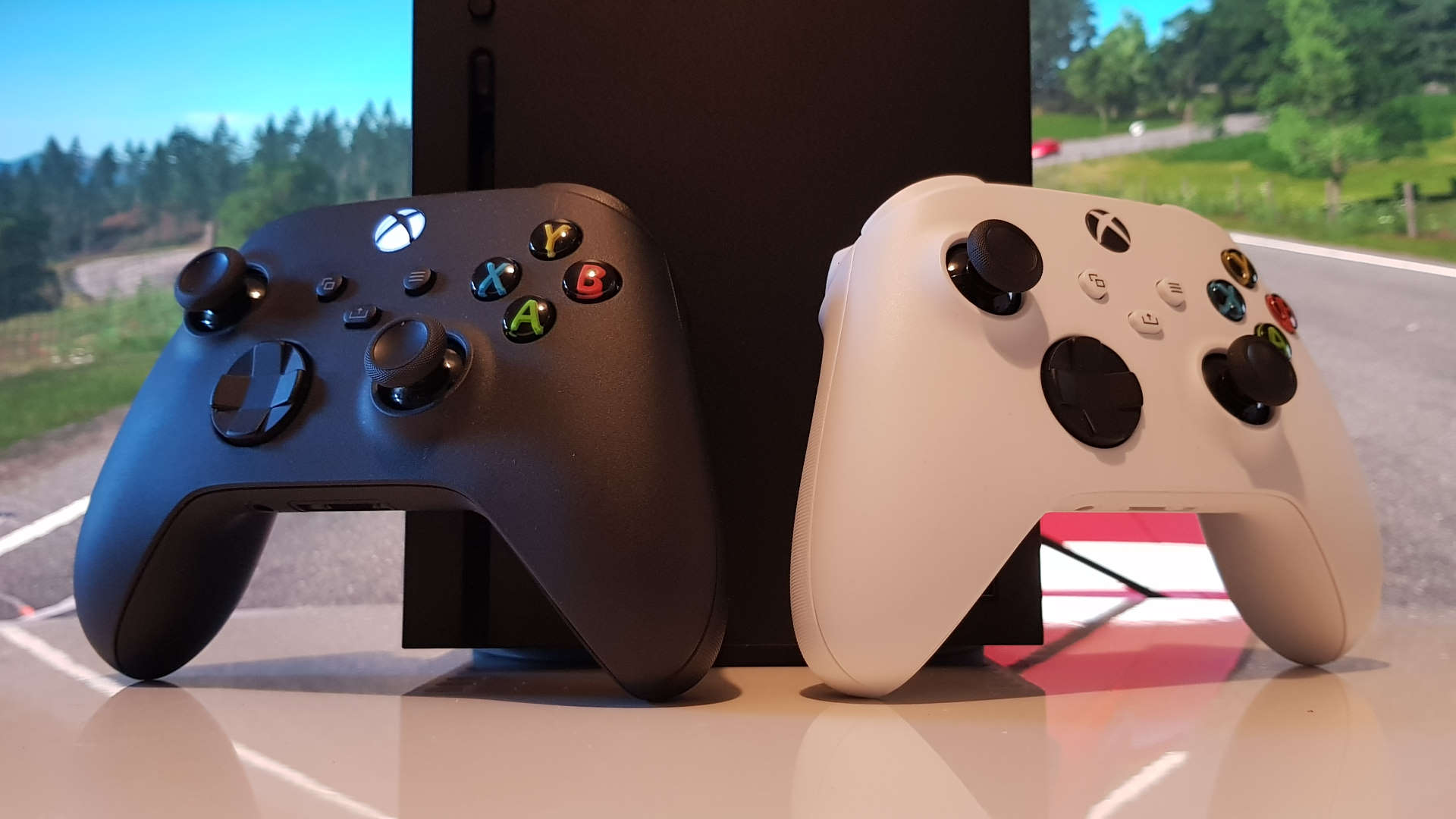
With all that positivity, however, there are some negatives which make it all feel even more PC-like. While the UI is certainly slick and responsive, and the Series X wakes up at lightning speed, getting you into the game with Quick Resume faster than any PC I've ever used, it's not without its bugs.
I've mentioned the issue in Madden 21 where Quick Resume can't get you back to the same point, but there are others. I had issues with the early optimised version of Forza Horizon 4 where the audio was a growling mess after I'd switched the machine back on, similarly the audio has a tendency to glitch when you capture something using your new controller button too.
I also had occasional issues where Witcher 3 would Quick Resume to a blank screen and needed to jump back Home before trying again.
Those are all relatively tiny niggles, and all purely temporary issues. They're also likely to be fixed through updates which you'll never even see thanks to the ability to update while the machine is otherwise turned off. But it still feels quite PC...
What doesn't is just how quiet the system is. Even under heavy load the chunky fan on top of the Series X never gets louder than a whisper, and then you'll have to strain to hear it. Sure, it's venting out a lot of hot air, so don't rest a bar of chocolate on top of it, but the innovative cooling design sure seems to be working for me.
Xbox Series X verdict
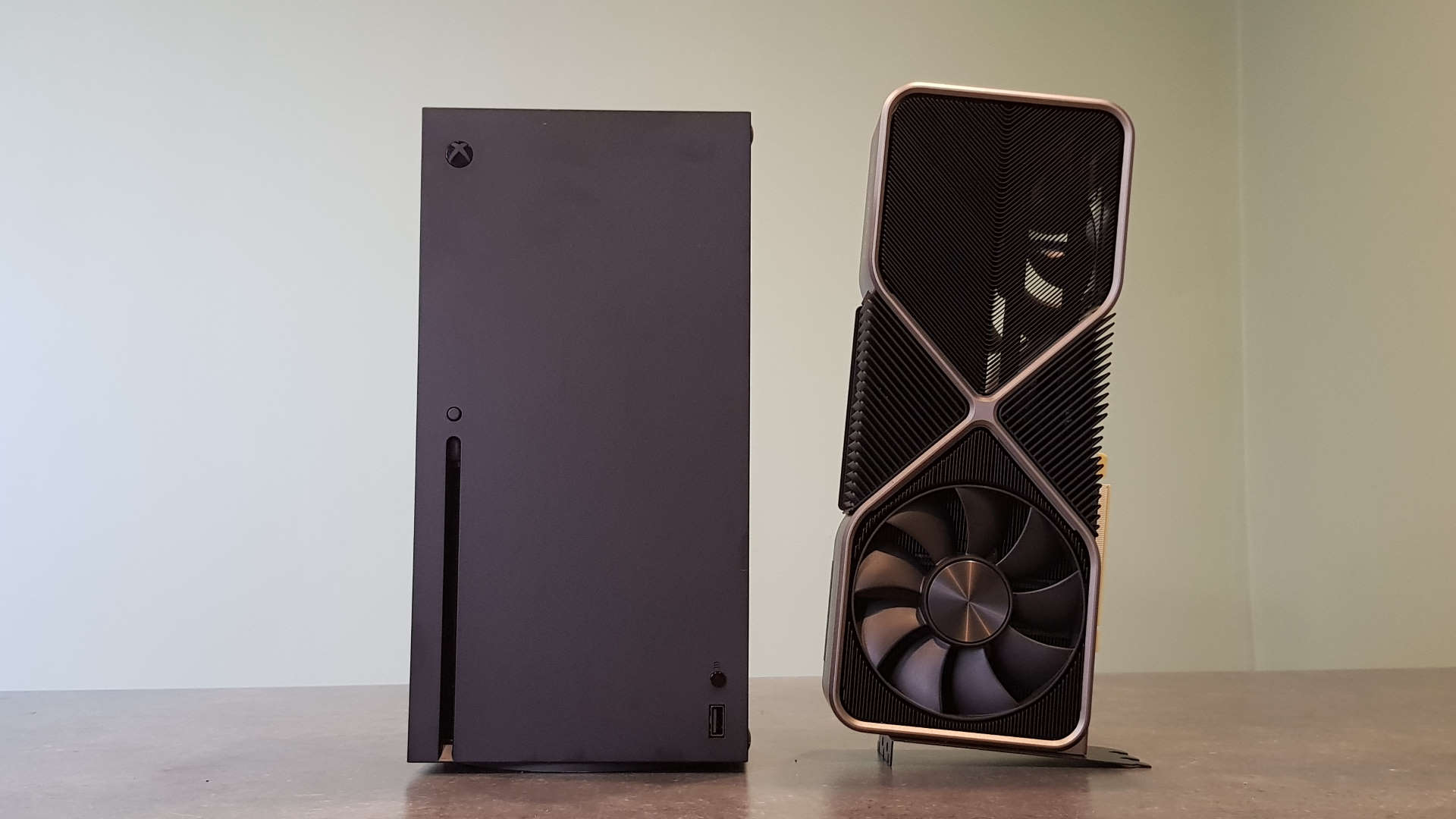
Xbox Series X verdict
The Xbox Series X is a tough one to review as a PC gamer, especially one coming off the back of testing a host of new Nvidia graphics cards. But there is some equivalence there. This machine isn't really representative of a new generation of consoles, it's actually far more like dropping a new graphics card into your PC.
The one-size-fits-all, just-play-your-games approach has vanished
Your existing games library still works, but suddenly performs better, you now have access to graphical features your old hardware might not have afforded you in new games, but otherwise it's essentially the same experience, only better. That's maybe a little unfair given the difference the SSD and supporting Zen 2 CPU cores make—the One X showed the limitations of simply bumping up the GPU power—but as a PC gamer using the Series X feels like an upgrade more than a whole new world of gaming.
Around launch there will be some titles arriving to use the power available to the Series X, and down the line developers will squeeze more and more impressive things out of the system. But, given that everything coming to the Series X game-wise will also be hitting the PC, it's tough to make the call that it's a worthwhile TV-based companion to your gaming rig right now.
I picked up an Xbox 360 back in the day, despite having a powerful gaming PC, simply because there were game experiences I had to have that were only available on the console. With Microsoft making Windows and Xbox practically the same platform that's not a pull anymore.
Even the PS5, which actually does have some first-party exclusives, isn't really tempting me away from the PC. Couple that with the fact that the thing which made console gaming stand apart from the PC, the one-size-fits-all, just-play-your-games approach has vanished, and you're not really getting an easier ride opting for the console.
If you're a PC gamer, with a system from the last five years or so, I simply can't recommend the Xbox Series X as a viable purchase, whether as a replacement or secondary machine. The new consoles are coming at a point where the PC is getting a whole new step change in hardware—so take that $500 and drop it on an RTX 3070 instead. Well, if you can find one...

Dave has been gaming since the days of Zaxxon and Lady Bug on the Colecovision, and code books for the Commodore Vic 20 (Death Race 2000!). He built his first gaming PC at the tender age of 16, and finally finished bug-fixing the Cyrix-based system around a year later. When he dropped it out of the window. He first started writing for Official PlayStation Magazine and Xbox World many decades ago, then moved onto PC Format full-time, then PC Gamer, TechRadar, and T3 among others. Now he's back, writing about the nightmarish graphics card market, CPUs with more cores than sense, gaming laptops hotter than the sun, and SSDs more capacious than a Cybertruck.

